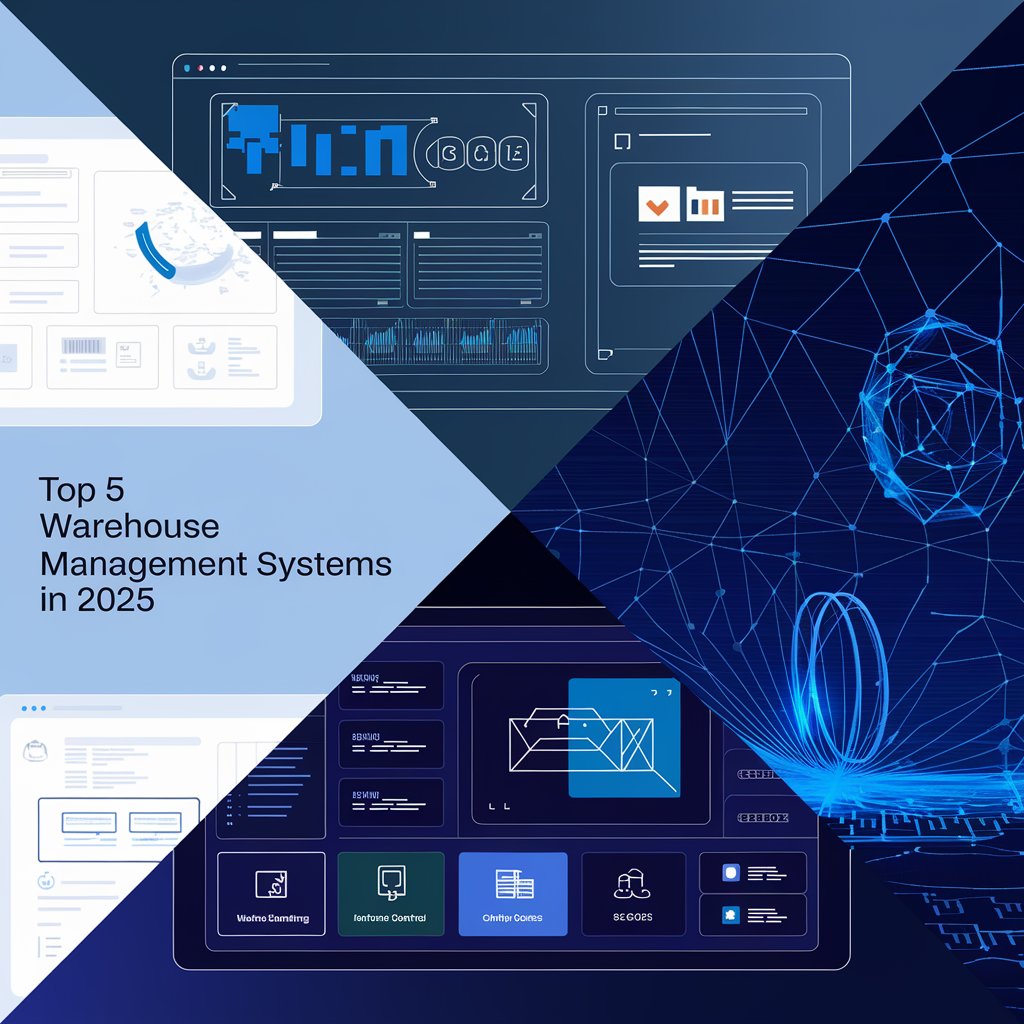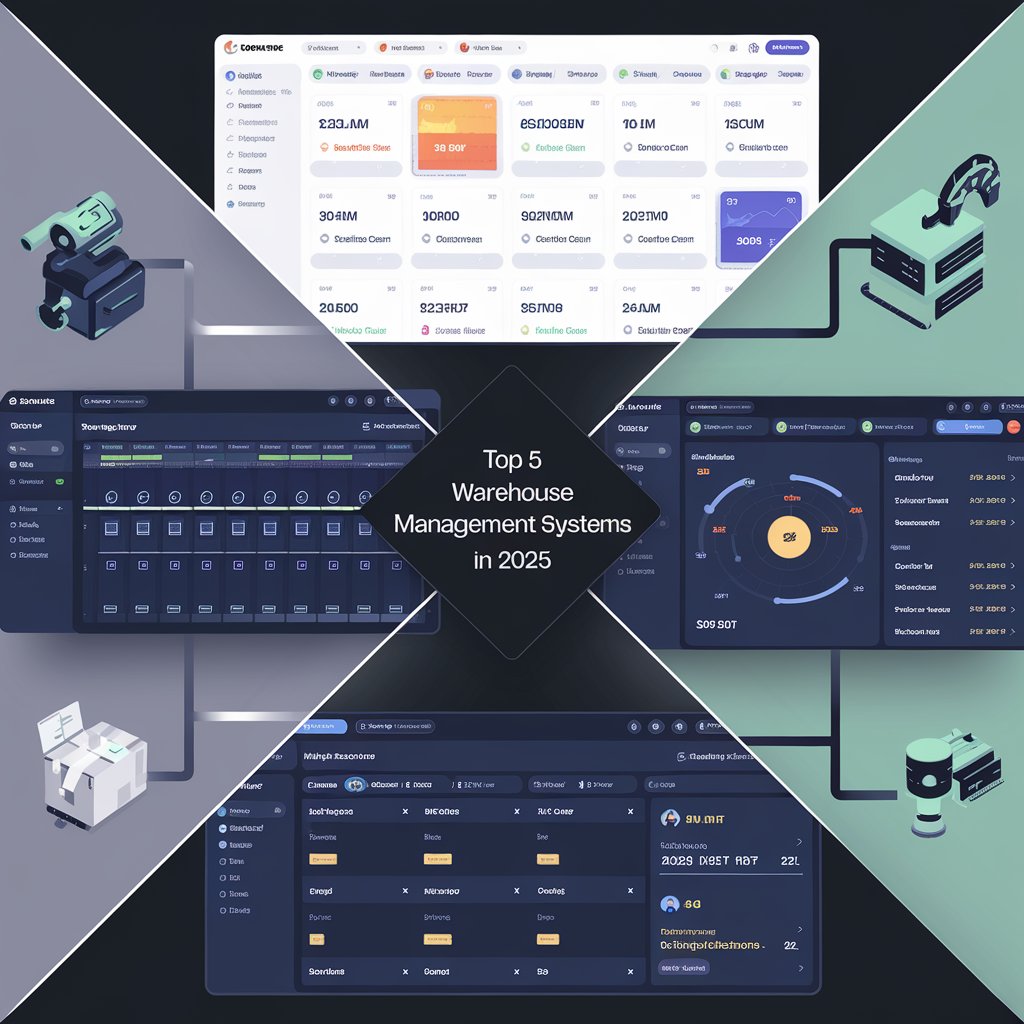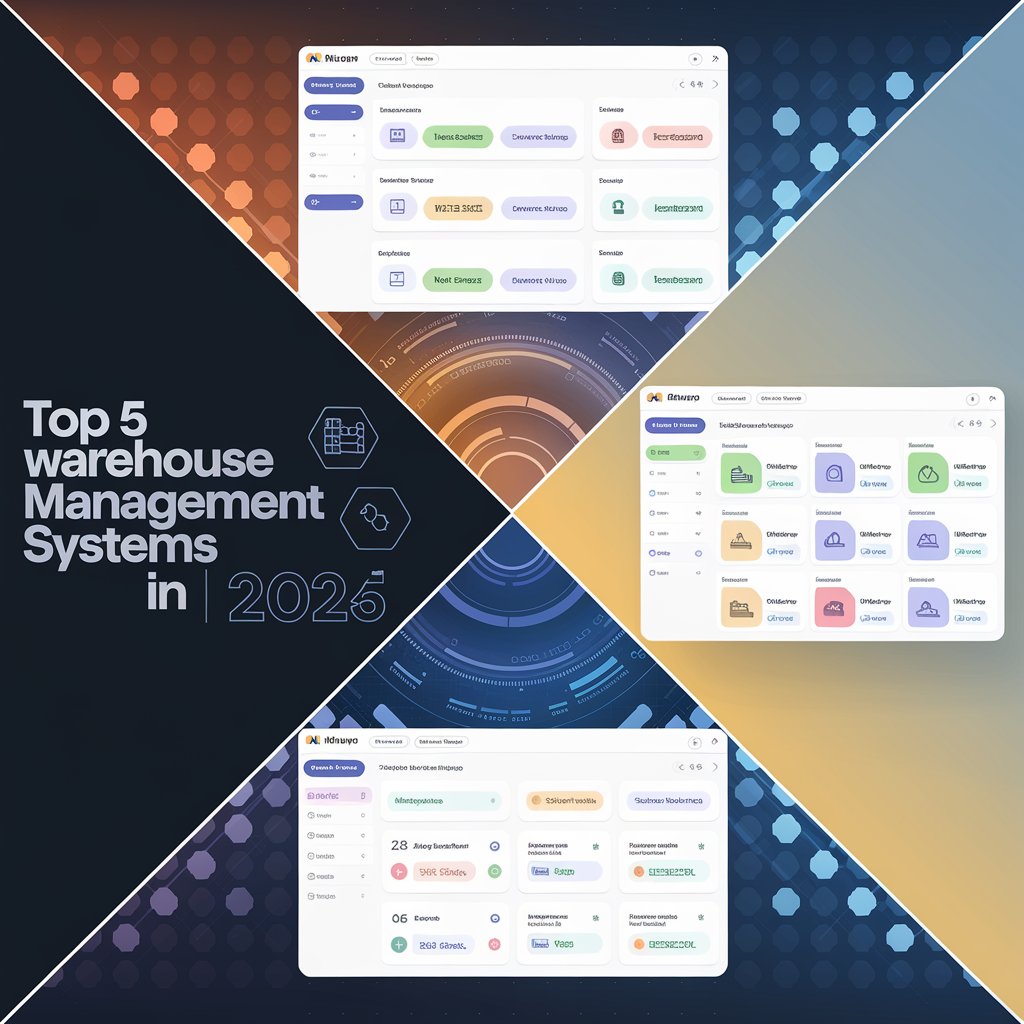Top 5 Warehouse Management Systems in 2025 (Features & Pricing)

1. Fishbowl Warehouse
🔹 Best for: Small to medium-sized businesses needing inventory and manufacturing control
🔹 Key Features:
- Inventory and order management
- Integrations with QuickBooks, Xero, and Shopify
- Barcode scanning and multi-location tracking
🔹 Pricing: Starts at $4,395 (one-time license)
🔹 Pros: Strong QuickBooks sync, user-friendly
🔹 Cons: Steep upfront cost, limited mobile UX
2. NetSuite WMS by Oracle
🔹 Best for: Enterprises and fast-growing companies
🔹 Key Features:
- Real-time inventory visibility
- Advanced wave picking, put-away rules, and cartonization
Native ERP and financial suite integration
🔹 Pricing: Custom pricing (based on modules)
🔹 Pros: Powerful and scalable
🔹 Cons: High implementation cost and learning curve

3. Zoho Inventory / WMS
🔹 Best for: Ecommerce sellers and startups
🔹 Key Features:
- Sales and purchase order management
- Warehouse transfers and stock adjustments
- Shopify, Amazon, and eBay integration
🔹 Pricing: Free tier available, paid plans from $59/month
🔹 Pros: Easy to use, great for online sellers
🔹 Cons: Limited for complex warehouse operations
4. Softeon WMS
🔹 Best for: High-volume warehouses and 3PL providers
🔹 Key Features:
- Multi-site warehouse support
- Labor and yard management
Dynamic slotting and real-time reporting
🔹 Pricing: Custom quotes; typically enterprise-level
🔹 Pros: High flexibility, enterprise-grade functionality
🔹 Cons: Not ideal for small businesses

5. Linbis WMS
🔹 Best for: Logistics companies, freight forwarders, and 3PLs
🔹 Key Features:
- Inventory control with real-time updates
- Shipment tracking and barcode-ready interface
Cloud-based with customizable modules
🔹 Pricing: Subscription-based, flexible plans available
🔹 Pros: Designed with logistics in mind
🔹 Cons: May be too niche for non-logistics businesses
🧠 How to Choose the Right WMS?
Here are some factors to consider:
- Warehouse size and complexity
- Integration needs (ERP, TMS, ecommerce)
- Team tech skill level
- Budget (license vs. subscription models)
- Scalability as your operation grows
💡 Pro tip: Start with a free trial or demo whenever possible to test usability before committing.

🏁 Final Thoughts
Choosing the right WMS is a strategic decision — and in 2025, the best systems go beyond inventory management to offer automation, integration, and real-time insights. Whether you’re a small operation or a global logistics player, there’s a solution that fits your needs.
